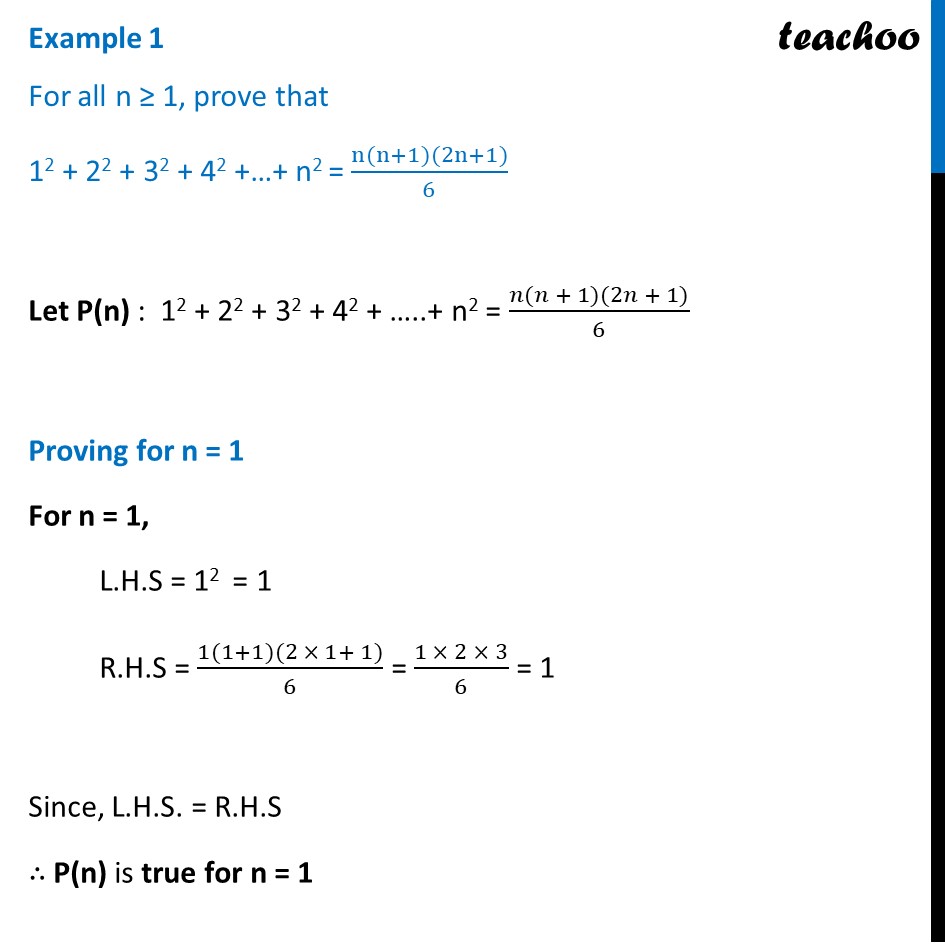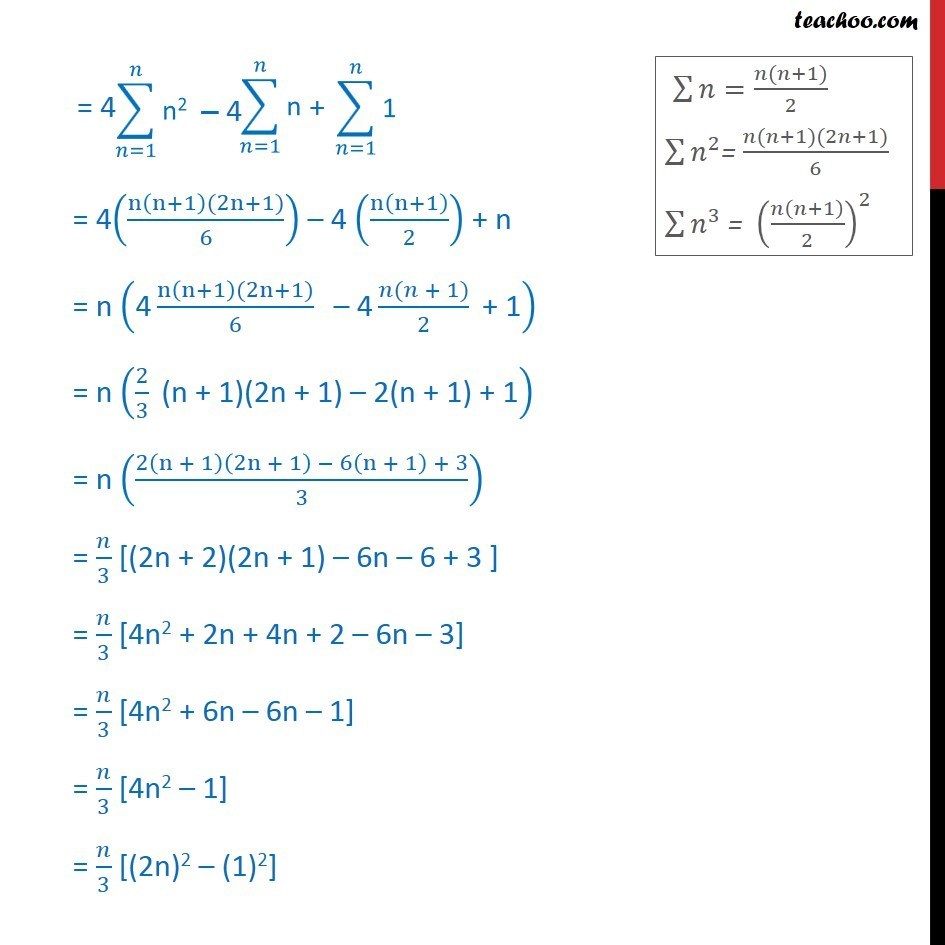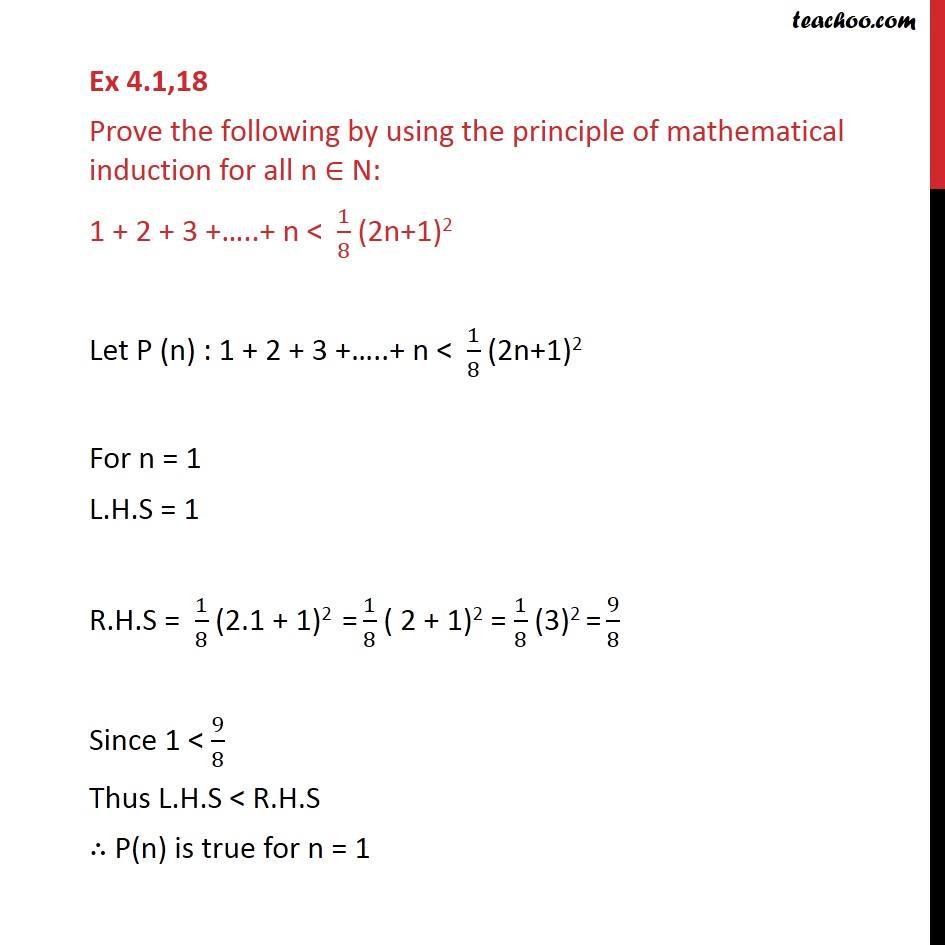
Induction Help: prove $2n+1< 2^n$ for all $n$ greater than or equal to $3$. - Mathematics Stack Exchange

discrete mathematics - Why does $n(n+1)(2n+1)+6(n+1)^2=(n+1)(n(2n+1)+6(n+1))$? - Mathematics Stack Exchange
Bonjour besoin d'aide pour cette exercice svp. Démontrer par récurrence que pour tout entier naturel n - Nosdevoirs.fr
Quelle est la limite de [math]\displaystyle\lim_{n\to\infty}\frac{1 }{n}\sqrt[n]{n(n+1)\cdots(2n-1)}[/math] ? - Quora

Bonsoir, j'ai cet exercice en spé maths (Terminale S) merci de m'aider je ne trouve pas comment démontrer - Nosdevoirs.fr

Prove that x^(2n-1)+y^(2n-1) is divisible by x+y for all n belongs to N - CBSE Class 11 - Learn CBSE Forum
If there are (2n+1) terms in AP, then prove that the ratio of the sum of odd terms and the sum of even terms is (n+1):n.


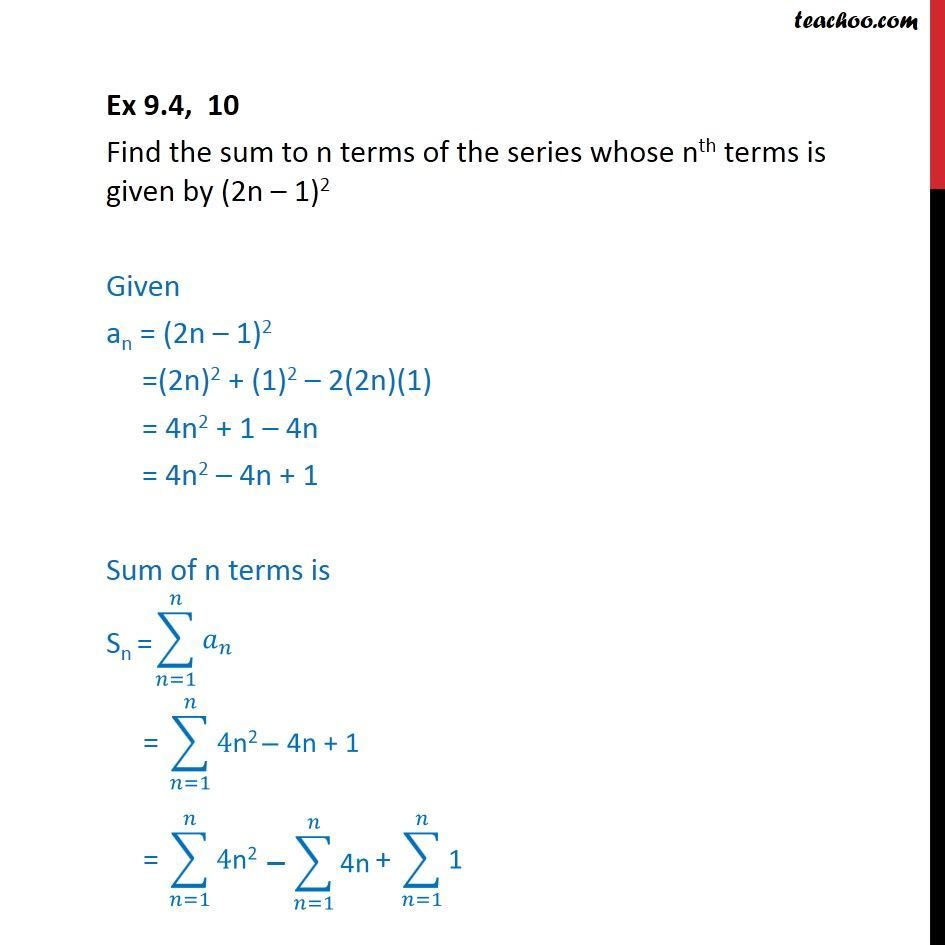

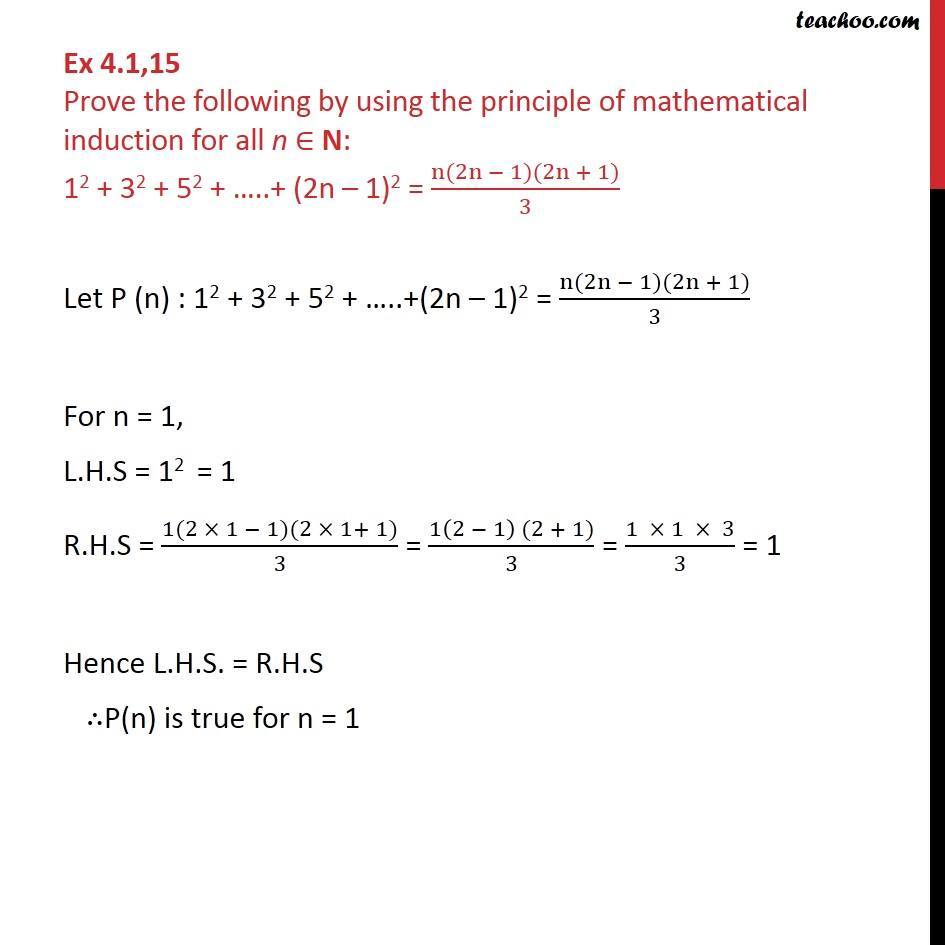

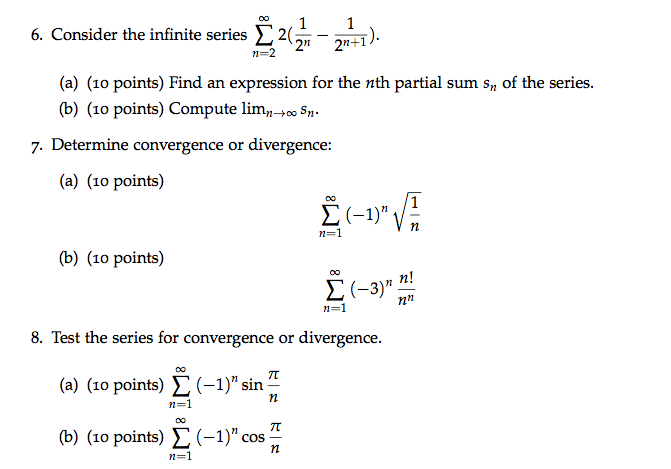

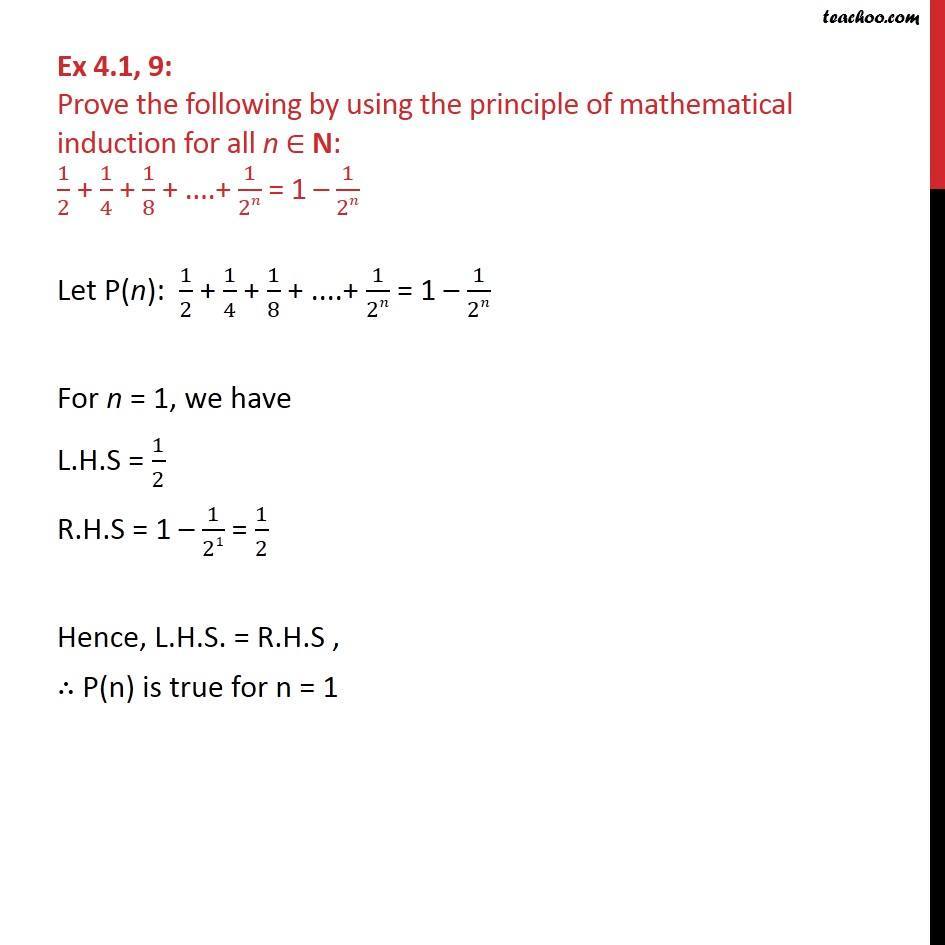
![Sum n=1 to infinity of 4/[(2n-1)(2n+1)] - YouTube Sum n=1 to infinity of 4/[(2n-1)(2n+1)] - YouTube](https://i.ytimg.com/vi/EakE2gGWoUY/maxresdefault.jpg)


